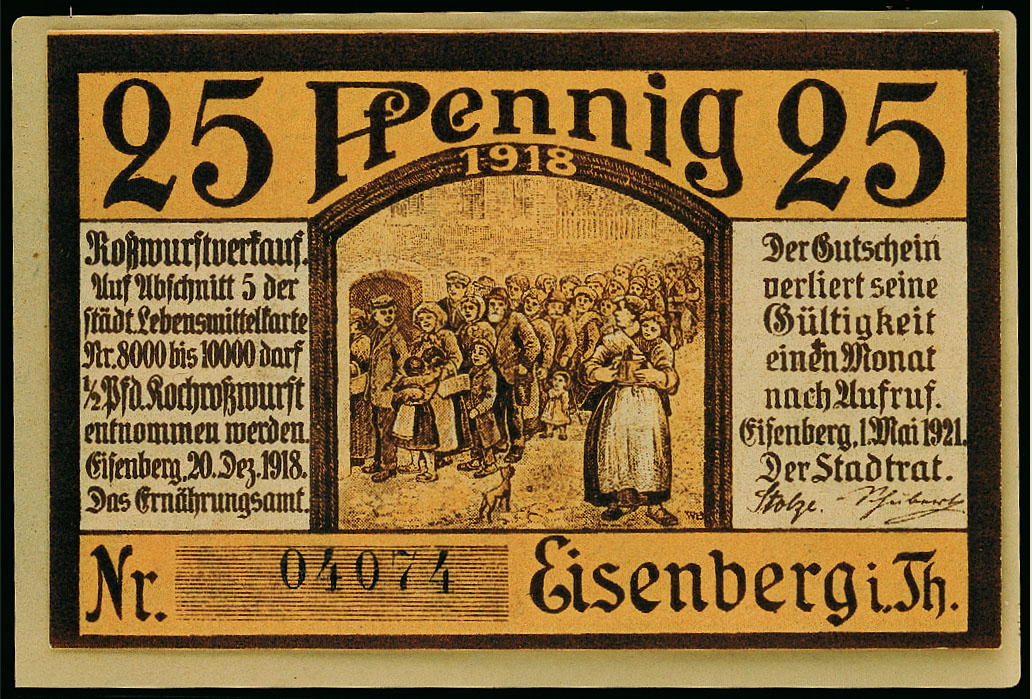A History of World Societies:
Printed Page 860
Listening to the Past
The Experience of War
Listening to the Past
The Experience of War
World War I was a total war: it enlisted the efforts of male and female adults and children, both at home and on the battlefield. It was a terrifying and painful experience for all those involved, not the romantic endeavor it was purported to be. The documents below offer two different wartime experiences. The first is from a letter written by a German soldier fighting in the trenches. The second is from the diary of a Viennese woman. As you read both passages, think about the different ways war and its consequences were made real for these two people.
A German Soldier Writes from the Trenches, March 1915
“Souchez, March 11th, 1915
“So fare you well, for we must now be parting,” so run the first lines of a soldier-
Our regiment has been transferred to this dangerous spot, Souchez. No end of blood has already flowed down this hill. A week ago the 142nd attacked and took four trenches from the French. It is to hold these trenches that we have been brought here. There is something uncanny about this hill-
This letter has been interrupted no end of times. Shells began to pitch close to us — great English 12-
Everybody must be prepared now for death in some form or other. Two cemeteries have been made up here, the losses have been so great. I ought not to write that to you, but I do so all the same, because the newspapers have probably given you quite a different impression. They tell only of our gains and say nothing about the blood that has been shed, of the cries of agony that never cease. The newspaper doesn’t give any description either of how the “heroes” are laid to rest, though it talks about “heroes’ graves” and writes poems and such-
I look upon death and call upon life. I have not accomplished much in my short life, which has been chiefly occupied with study. I have commended my soul to the Lord God. It bears His seal and is altogether His. Now I am free to dare anything. My future life belongs to God, my present one to the Fatherland, and I myself still possess happiness and strength.”
A Viennese Woman Remembers Home-
“Ten dekagrammes [3½ ounces] of horse-
I overcame my repugnance, rebuked myself for being sentimental, and left the house. A soft, steady rain was falling, from which I tried to protect myself with galoshes, waterproof, and umbrella. As I left the house before seven o’clock and the meat distribution did not begin until nine o’clock, I hoped to get well to the front of the queue.
No sooner had I reached the neighbourhood of the big market hall than I was instructed by the police to take a certain direction. I estimated the crowd waiting here for a meagre midday meal at two thousand at least. Hundreds of women had spent the night here in order to be among the first and make sure of getting their bit of meat. Many had brought with them improvised seats — a little box or a bucket turned upside down. No one seemed to mind the rain, although many were already wet through. They passed the time chattering, and the theme was the familiar one: What have you had to eat? What are you going to eat? One could scent an atmosphere of mistrust in these conversations: they were all careful not to say too much or to betray anything that might get them into trouble.
At length the sale began. Slowly, infinitely slowly, we moved forward. The most determined, who had spent the night outside the gates of the hall, displayed their booty to the waiting crowd: a ragged, quite freshly slaughtered piece of meat with the characteristic yellow fat. [Others] alarmed those standing at the back by telling them that there was only a very small supply of meat and that not half the people waiting would get a share of it. The crowd became very uneasy and impatient, and before the police on guard could prevent it, those standing in front organized an attack on the hall which the salesmen inside were powerless to repel. Everyone seized whatever he could lay his hands on, and in a few moments all the eatables had vanished. In the confusion stands were overturned, and the police forced back the aggressors and closed the gates. The crowds waiting outside, many of whom had been there all night and were soaked through, angrily demanded their due, whereupon the mounted police made a little charge, provoking a wild panic and much screaming and cursing. At length I reached home, depressed and disgusted, with a broken umbrella and only one galosh.
We housewives have during the last four years grown accustomed to standing in queues; we have also grown accustomed to being obliged to go home with empty hands and still emptier stomachs. Only very rarely do those who are sent away disappointed give cause for police intervention. On the other hand, it happens more and more frequently that one of the pale, tired women who have been waiting for hours collapses from exhaustion. The turbulent scenes which occurred to-

Sources: Alfons Ankenbrand, in German Students’ War Letters, ed. A. F. Wedd (London: Methuen, 1929), pp. 72–
QUESTIONS FOR ANALYSIS
- What is the soldier’s view of the war? Would you characterize it as an optimistic or pessimistic letter? Why?
- What similarities and differences do you see in the experiences of the soldier and the Viennese woman?
- Why does the Viennese woman describe the housewives as “blameworthy” and “incomprehensible”?